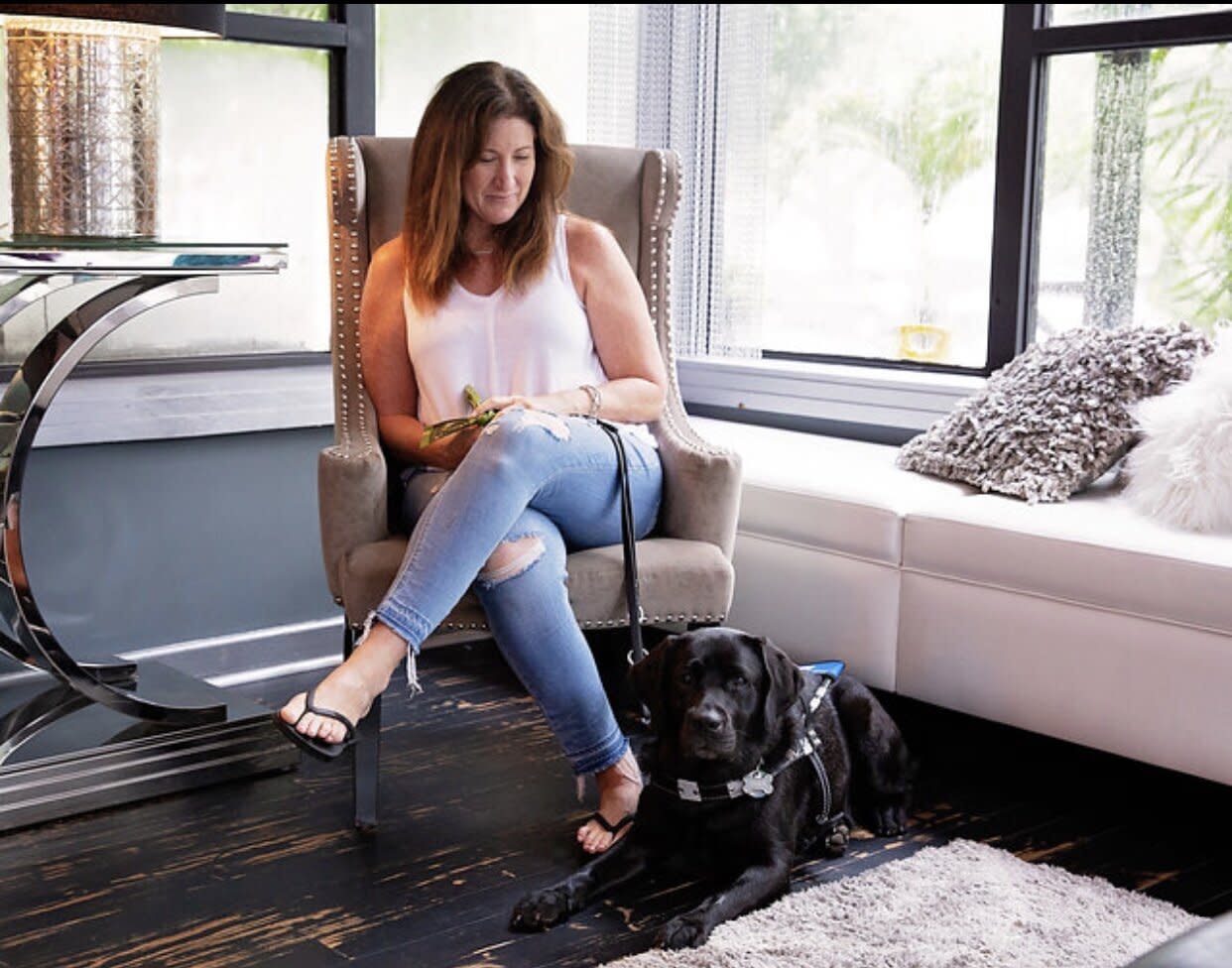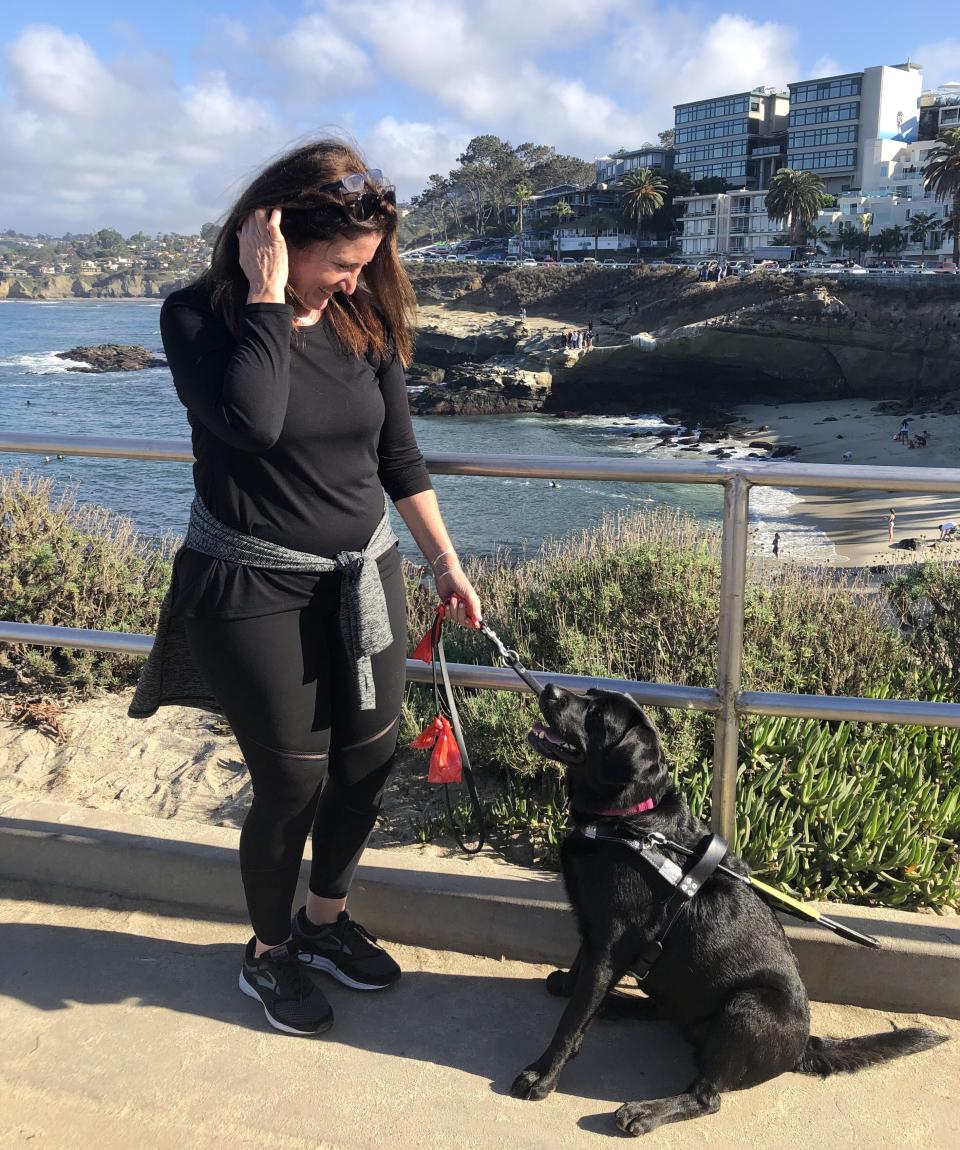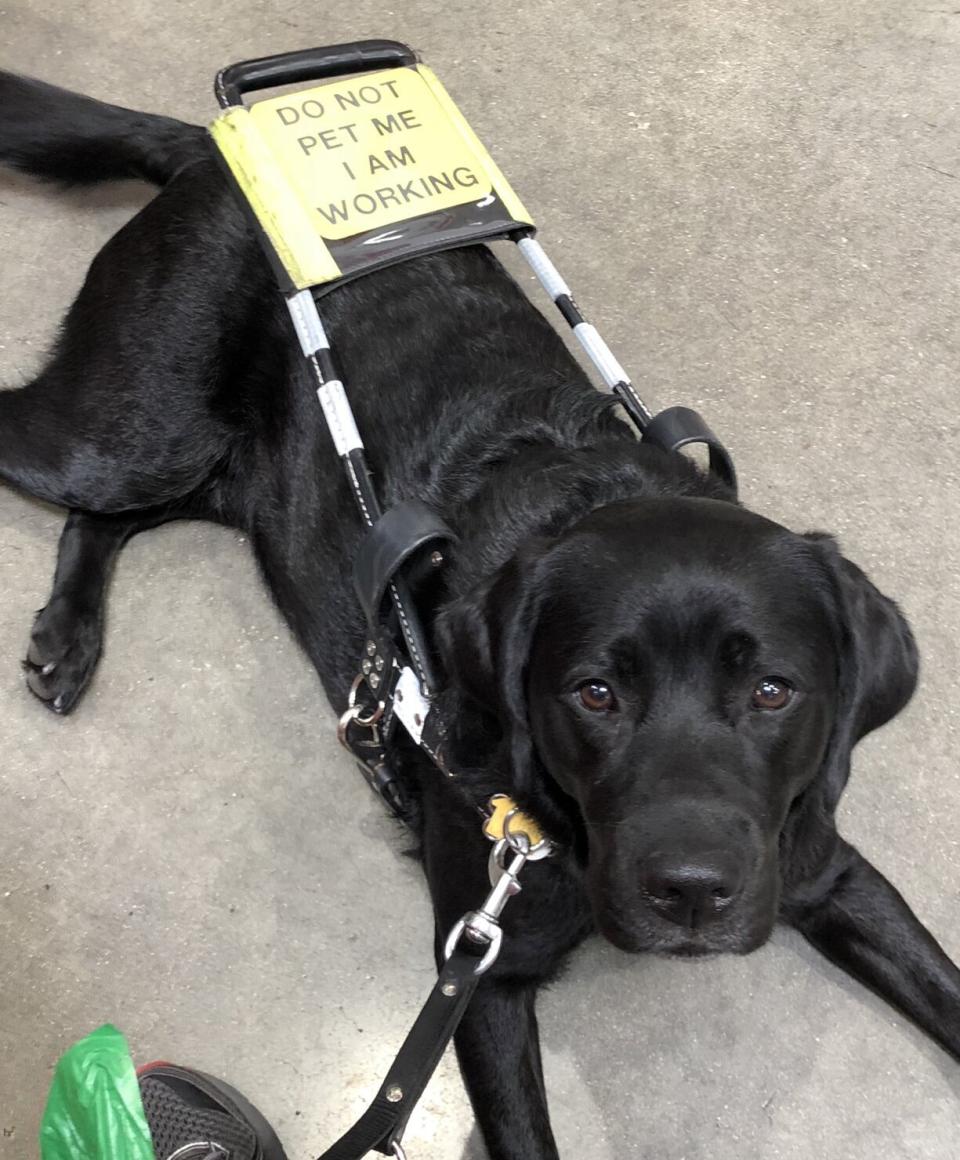Legally blind and deaf woman denied Uber ride due to service dog: ’It broke me down’

Robbie Esper, a legally deaf and blind woman, says she broke down when an Uber driver refused to give her a ride after seeing her with her service dog at a Florida airport. It was Esper’s birthday when her Uber driver “left her in the blazing hot sun and took off” on May 26.
“I felt frustrated, angry, embarrassed,” Esper tells Yahoo Lifestyle. “There were people around and saw the whole interaction, [and I] wanted to cry. I felt discriminated against because of an animal that provides life safety for me. It broke me down.”
While this isn’t the first time the 53-year-old former probation officer has been denied transportation because of her service dog, Esper is speaking out to make sure it’s her last.
“I just got sick and tired of being turned away... I had to step up and demand more action,” Esper says.

Esper suffers from Usher Syndrome, a condition that results in the progressive loss of both hearing and vision. While she can still hear with the use of hearing aids, Esper has lost much of peripheral vision and has seven degrees field vision compared to the normal 140 to 180 degrees field vision.
For this reason, her service dog, a 3-and-a-half-year-old black Labrador named Sara, is Esper’s “eyes and ears,” guiding her nearly all the time.
“She makes sure I am safe. She guides me around obstacles, curbs, overhangs and from bumping and tripping,” Esper tells Yahoo Lifestyle, adding that Sara was trained “by one of the finest guide dog schools in the U.S.,” Southeastern Guide Dogs. “She’s my partner in every sense of the word.”
As usual, Sara accompanied Esper when she called an Uber ride to take her to her home in Aventura, Fla., from the Fort Lauderdale-Hollywood International Airport. Sara was wearing her harness clearly showing she was a service dog. When the driver arrived in a white Hyundai Sonata, they exchanged names through the passenger window to confirm each other’s identity. After that, Esper claims the driver refused to let her in the car.
“He told me, ‘I will not take the dog in my car. I will not allow you and your dog in my car.’ I tried to explain but at that point he rolled up his window and proceeded to drive away,” Esper recalls of her exchange with the driver, despite Uber policies prohibiting discrimination in serving riders with disabilities.

“I had to wait in 95 degree weather another 10 minutes for the next driver. In total between first driver and second driver, I waited close to a half-hour.”
Although he drove away, Esper was able to take a photo of the car’s license plate while he was stuck in the airport traffic. Unable to leave a comment or review because the driver immediately requested another driver for her, the Florida woman took to social media to write an open letter to her driver.
“You’re extremely lucky you are able to see and drive. You have the freedom to get in your car, go places and see the world with those eyes,” Esper wrote in an impassioned letter. “But today, you only saw a black Labrador guide dog and a visually impaired person and decided to cancel the ride because ‘the dog is not allowed in your car.’”
She went on to criticize Uber’s “two-strike policy” that allows Uber drivers at least two complaints from riders before they are kicked off the ride-share app, arguing that it impacts many disabled individuals with service dogs.
After filing a complaint on Twitter and Facebook, Esper was unhappy with the two separate “robotic” responses she received, notifying her that her case was “sent to the proper department for investigation.”
Esper says that Uber only took real action after a local news story about the incident aired on television.
“Immediately Uber sent me a support message apologizing, refunded my $25.30 towards future rides with them,” Esper says, adding that she doesn’t plan to use the app ever again.
A statement from Uber read: “We've reached out to the rider to offer our support and the driver no longer has access to the app. We have a two-way feedback system and can take appropriate action in responding to incidents if they are reported to us."
The statement continued: “When entering into a technology services agreement with Uber, driver-partners agree to transport service animals and operate in compliance with all applicable accessibility laws.”
Despite signing agreements with organizations like the National Federation of the Blind to ensure service for travelers with disabilities, both Lyft and Uber continue to have issues with drivers denying transportation to disabled individuals with assistive animals.
That’s why Esper says she’s calling out Uber for discriminating against riders with disabilities. She alone has been denied service for her guide dogs at least six times and has reached out to the the office that handles civil rights of those with disabilities at the Department of Justice about one incident.
“My rights have definitely been violated,” she says. :We shouldn’t be singled out and discriminated against just because we rely on a service dog to have independence and freedom just like everyone else.”
Esper says she intends to report Uber once again to the Department of Justice. While she seeks legal advice about whether or not she will pursue legal action, Esper says she hopes to be a voice for other individuals living with disabilities who face discrimination from driving apps like Lyft and Uber.
“I hope to bring awareness that this is happening to many people around the world,” she says. “It’s downright discrimination.”
Read more from Yahoo Lifestyle:
? Comedian says Lyft driver harassed her: 'I thought I might be kidnapped, raped, or even killed'
? Lyft driver accused of forcibly removing college student from car for cursing
Follow us on Instagram, Facebook, and Twitter for nonstop inspiration delivered fresh to your feed, every day.
